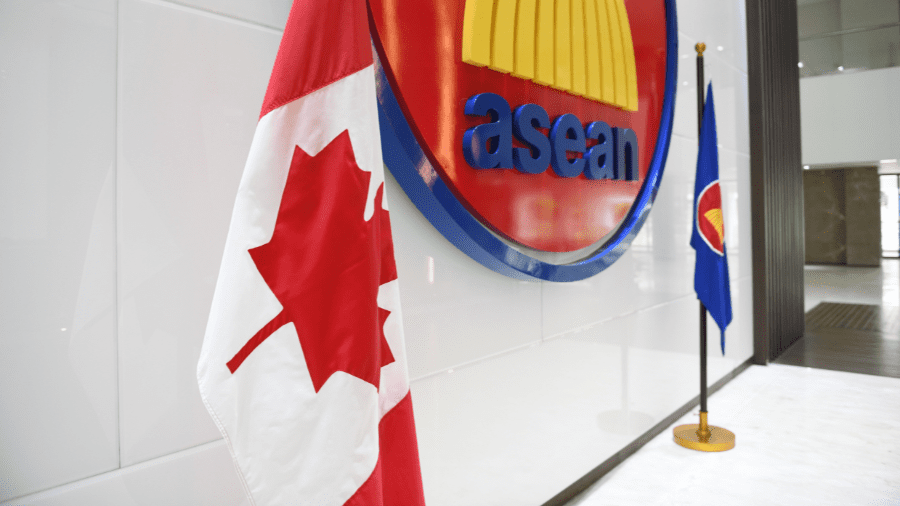By Huong Le Thu, April 5, 2023
As Indo-Pacific strategic concepts are increasingly popularized and mainstream, Southeast Asia has become the primary theatre for announcements, strategic communication and even testing ground for such concepts. Japan (reaffirmed in 2016), US (2017), Australia (2017), India (2018), Germany (2020), Netherlands (2020), the EU (2021), France (reaffirmed in 2021) and the UK (2021) and others have demonstrated the region’s geostrategic significance. The newest Canadian Indo-Pacific strategy announced in recent months has added weight to this idea.
While the concepts differ significantly in scope, essence, and strategy, they share one commonality: the idea of connected oceans where Southeast Asian nations sit at the heart and form the epicentre of great power competition, which has come to define the Indo-Pacific. As such, the region has become “a crowded space” with many long-term actors that have been involved in various aspects of regional cooperation.
But Southeast Asia is not only an arena of competition; the region – collectively and as individual economies – has agency. The Association of Southeast Asian (ASEAN) nations are able to steer competitors and partners towards meeting their own priorities. They’ve also been able to carve out their own place in terms of political-military, economic, infrastructure and environment issues. While overarching interests converge, international partners should acknowledge the possibility of divergences in approaches, activities and underlying values compared to those of the US and its closest allies.
In 2019 the 10 members of ASEAN collectively issued the ASEAN’s Outlook on the Indo-Pacific, in which the association responded to the Indo-Pacific concepts by giving its own definition of the Indo-Pacific as consisting two sub-regions: the Indian Ocean and the Asia-Pacific. What stood out from the AOIP, other than emphasizing cooperation, is its rejection of “zero-sum competition.” This was another way of rejecting the Trump administration’s proposed Indo-Pacific strategy that put competition with China at the centre of its approach to the region.
It is also true that the promulgation of different Indo-Pacific concepts and what follows in various minilateral initiatives and increased emphasis on alliance relationships, particularly the US’s treaty allies, have contributed to ASEAN’s sense of insecurity. That has been, for example, frequently discussed when it came to the Quadrilateral Security Dialogue, also known as the Quad, comprising the US, Japan, Australia and India.
External developments are not the only issue. Critics point out that ASEAN has passed its heyday. Internally divided, with varying, sometimes contradicting security priorities and recognition of threats, it has long undermined its own strategic agency. The inability to arrive at a meaningful resolution of the South China Sea disputes is a frequently quoted example. But more recently, the Myanmar crisis has also exposed ASEAN’s weakness and inaction in important regional matters.
The fact that there are now more external initiatives that occupy strategic energy and attention in the region is seen as sidelining its centrality. ASEAN is no longer the only regional architecture, and certainly not as central as it would like to think of itself.
Nevertheless, ASEAN still has its values and function, and this is important for Canada to understand and tailor its strategy accordingly. Among the most important ones is its ability to project narratives. ASEAN serves as a good public messaging medium and should not be seen as a theatre for others to introduce their own ideas. Because it still hosts key multilateral forums, with partners extending far beyond only Southeast Asia, ASEAN is still a powerful narrative-generating and conveying mechanism.
For example, one of ASEAN’s popular narratives puts the blame for heightened tension in the region on the Indo–Pacific paradigm, especially the one adopted by the US. The defence and security component of the Indo-Pacific – be it the UK and European naval visits in the region – are seen as creating “strategic overcrowdedness” that raises the chances of accidents. While this is not necessarily true, especially when compared to China’s much more constant belligerency, such narratives are easily echoed and transmitted in the wider multilateral setting, making them the mainstream rhetoric.
Another thing to bear in mind is that ASEAN is already internally divided, making it almost impossible to please all 10 members (or 11, if Timor Leste joins). While dealing with ASEAN as a collective and respecting its architecture where due, Ottawa needs to understand that different ASEAN capitals (and also within them) have very dissimilar views about the changing world order as well as strategies towards this order.
Canada should calibrate its value-based foreign policy, especially when communicating its Indo-Pacific strategy to Southeast Asia. This strategy may not necessarily popular among all Southeast Asian states, but at the same time Canadians need to be true to themselves, so there’s a delicate balance to strike that requires skillful diplomacy.
Similarly, when it comes to strategic issues, Canada’s Indo-Pacific strategy should put due emphasis on messaging. So, despite the popular criticism of “arms race” or that the Indo-Pacific strategies are too militaristic (as some popular ASEAN narratives suggest), the key issue is not necessarily having a security and defence component in an Indo-Pacific strategy, but how it is being communicated and successfully messaged. Beneath the popular narratives, the countries in the region take security threats very seriously, given their vulnerable geographic positions and respective military modernization policies.
Canada does have one important advantage: its traditional emphasis on multilateralism. Canada should take stock of the multilateralism that resonates with ASEAN. Given its status of middle power, which it shares with regional countries, and its long-standing contribution and commitment to multilateralism, Canada can benefit from that convergence with ASEAN. This is particularly salient and valued given that the great power competition is undermining multilateral cooperation. Among the few things that Southeast Asians agree on is the value of (and protection afforded by) multilateral mechanisms. As a result, having a common commitment to multilateral diplomacy and trade should be the anchor for Canada’s Indo-Pacific strategy.
Huong Le Thu is non-resident fellow at the Center for Strategic and International Studies (CSIS).






